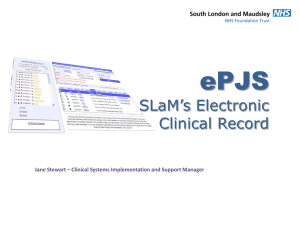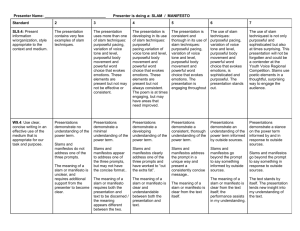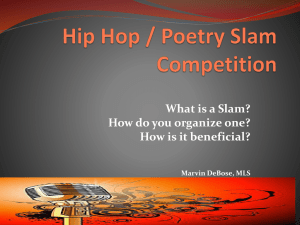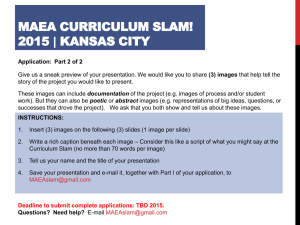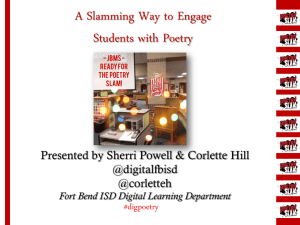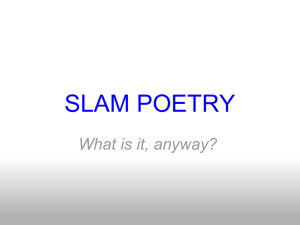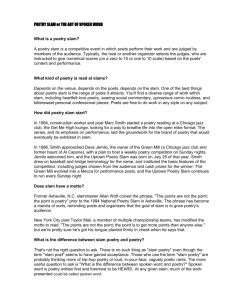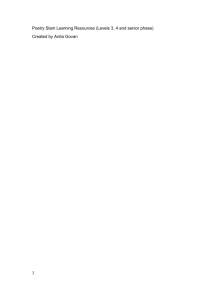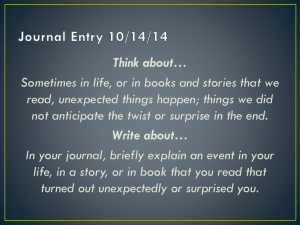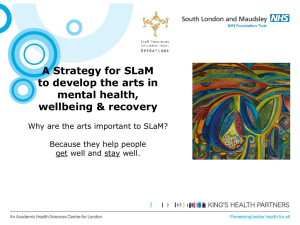Poetry Slam Powerpoint - Morehead Writing Project
advertisement
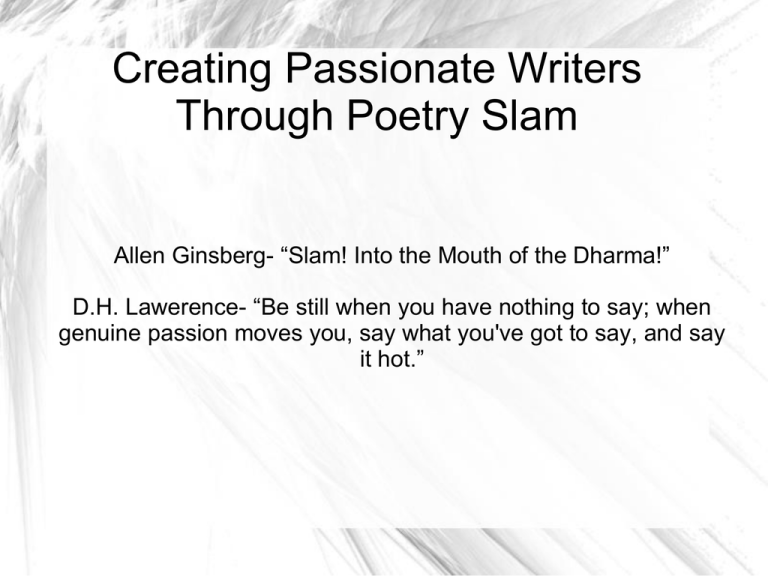
Creating Passionate Writers Through Poetry Slam Allen Ginsberg- “Slam! Into the Mouth of the Dharma!” D.H. Lawerence- “Be still when you have nothing to say; when genuine passion moves you, say what you've got to say, and say it hot.” A (very) Little History The slam was a vital and energetic movement in the 1990's – slams helped to revitalize interest in poetry and the value of spoken word performance. The slam honors poetry's oral tradition of story telling through emotive and concise language. Poetry's performance aspect has always been important and valued. The Beat History cont. writers were devoted to the spoken word and performance aspect of poetry, this devotion was given to a new generation of writers and reborn through the slam. Academia found fault with the movement, but youth- the young voice of a new Americafound freedom in the slam. The slam, known for highly political and critically charged messages does not seek History cont. approval- it seeks only to give a voice, to say what needs to be said, to tell truths. The slam is written with the purpose to be performed. It is highly politicized and draws upon racial, economic and gender injustices, current events or other things that serve to disrupt a desired state of harmony for the poet. Marc Smith, a construction worker and poet History cont. is credited with revitalizing spoken word performance through his series of slams in Chicago in 1986. Slams are staged as competitions where poets alone or in teams perform spoken word art with passion and are judged on enthusiasm, emotion as well as content and style. However, emotion is key- above all else the audience judges emotional reaction. Why teach Poetry Slam? Slams engage general audiences. Even those who do not “like words” are moved by the slam's ability to connect emotionally. Slams promote literacy- writing, reading, speaking and listening. Slams teach writers and listeners the power of poetic device, emotive and concise language, voice and 4,000 other awesome things! Why teach Poetry Slam? Slams teach students that poetry and all written words are living art forms, not just dead words on a page! Slams free our students from form and function and allow them to access their true voice...which leads to authentic learning...which is so cool! Websites and Resources To find lesson plans and more history on the poetry slam check out these resources and websites Complete lesson plan with standards and objectives http://www.pbs.org/newshour/extra/features/janjune00/poetryboxlessonplanone.html History http://www.e-poets.net/library/slam/ Competitions and further information http://www.poetryslam.com/ More reasons to teach slams (rationale for the admin) http://bostonteachnet.org/irwin/sigproj.htm Let's Watch Some! Taylor Mali “What Teachers Make” Sarah Kay “Not Just Another Math Problem” Sarah Kay “Worst Poetry” “Why I Hate Religion, But Love Jesus” George Watsky “Drunk Text Message to God” Brave New Voices Student samples My Experience I have used the slam for several years to engage and excite my students as we begin our poetry study. Be cautious. The slam is art- and art evokes emotion. The good and the bad. Let's Write What are you passionate about today? Is it your love of writing and teaching? Is it your pressing thoughts about the upcoming election? Your concern about current education mandates? Or is that too long line at Wal-Mart? Censorship? Some secret you are keeping? Your body? Sexuality? Loss? Hurt? Divorce? Gossip? Too much religion? Not enough religion? Cell phones? The way your children never seem to hear you until you say the pizza is here? Tell us about it. Write a list of ten things that get your heart pounding! GO! Writing time... From your list choose the one thing you have the most to say about, circle it. Now write for ten minutes. Think of nothing but the way you feel. Focus on the emotion, free it. Say everything you need to..say it the way you meant to...the way you have dreamed of...like DH said, say it hot cause it is about passion. Writing time Continue to write and remember...think only of emotion...what you feel and let it out on the page...give it life.... This rant will be the start of your slam. The next step is to read it aloud and perfect your performance.
